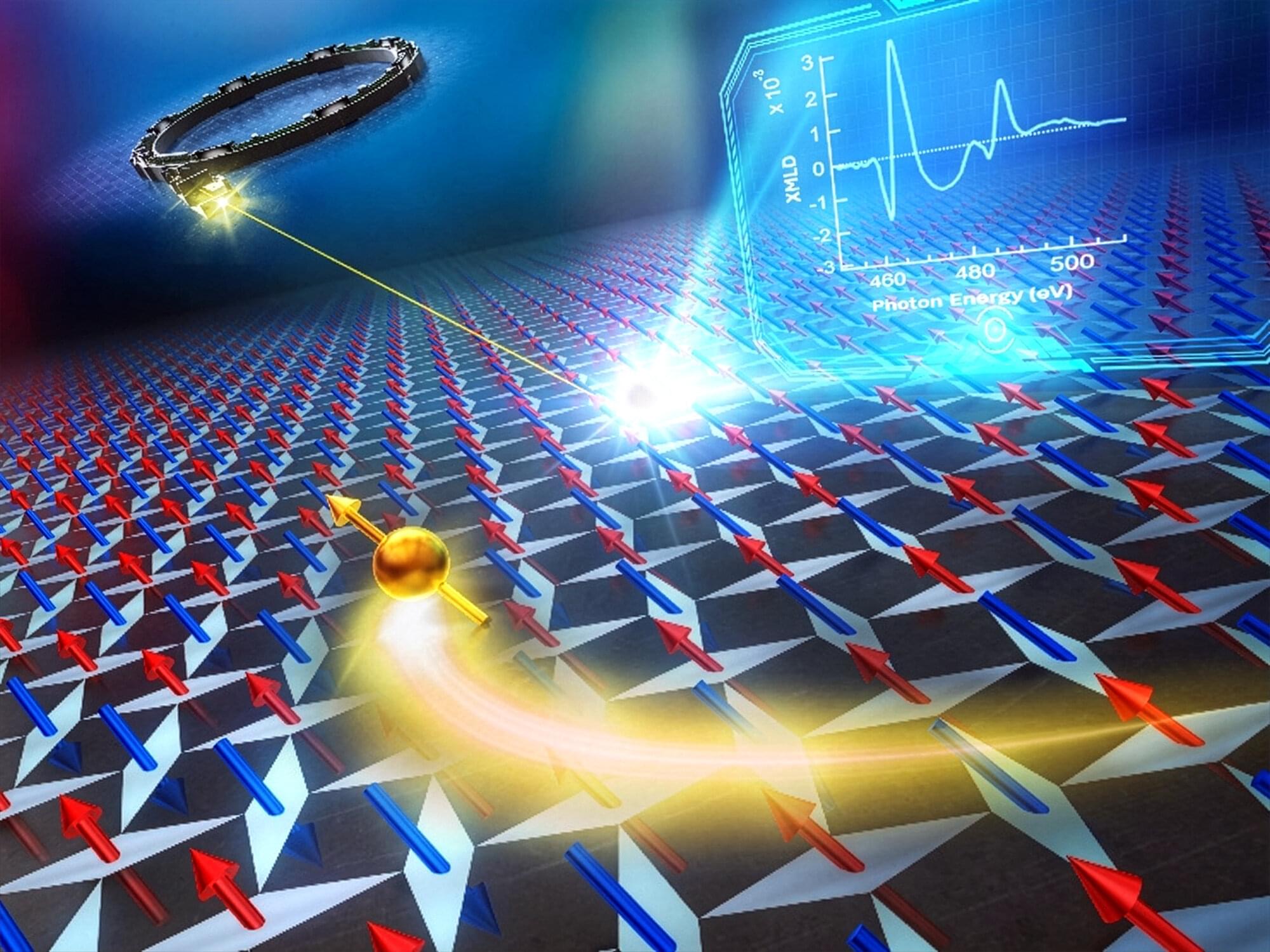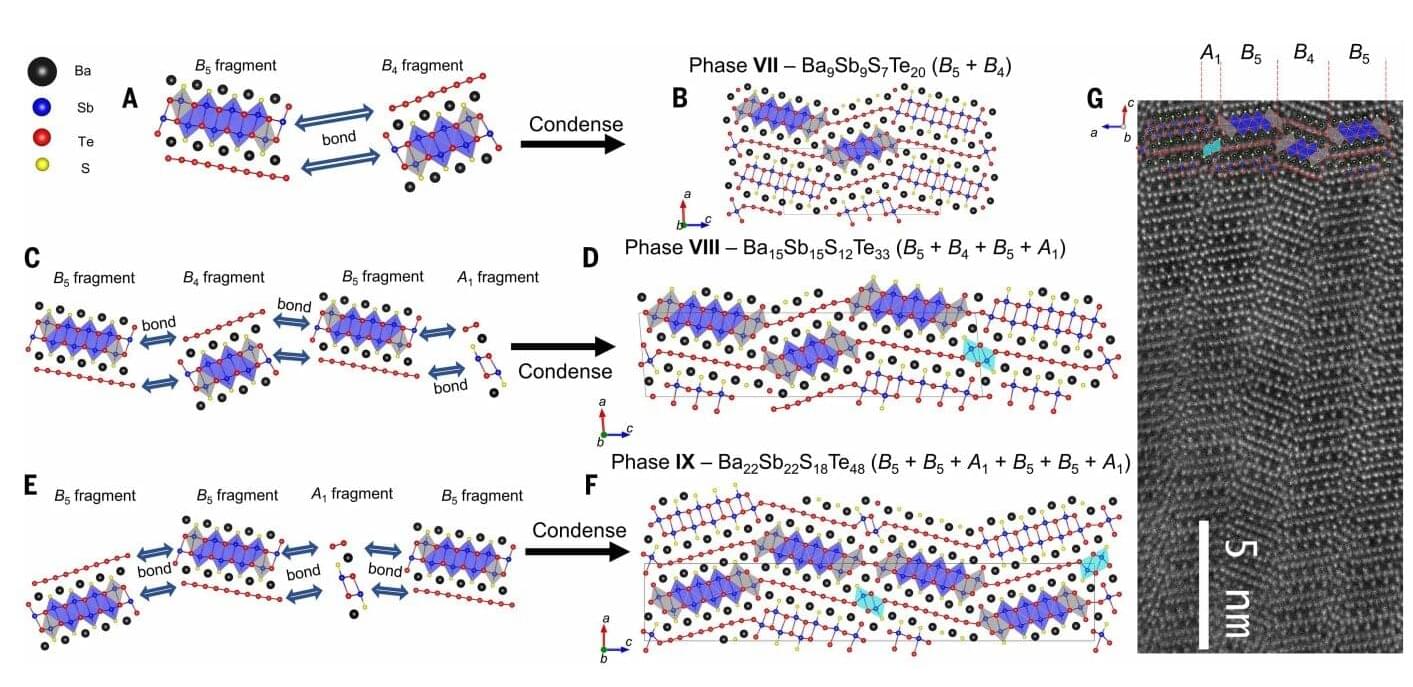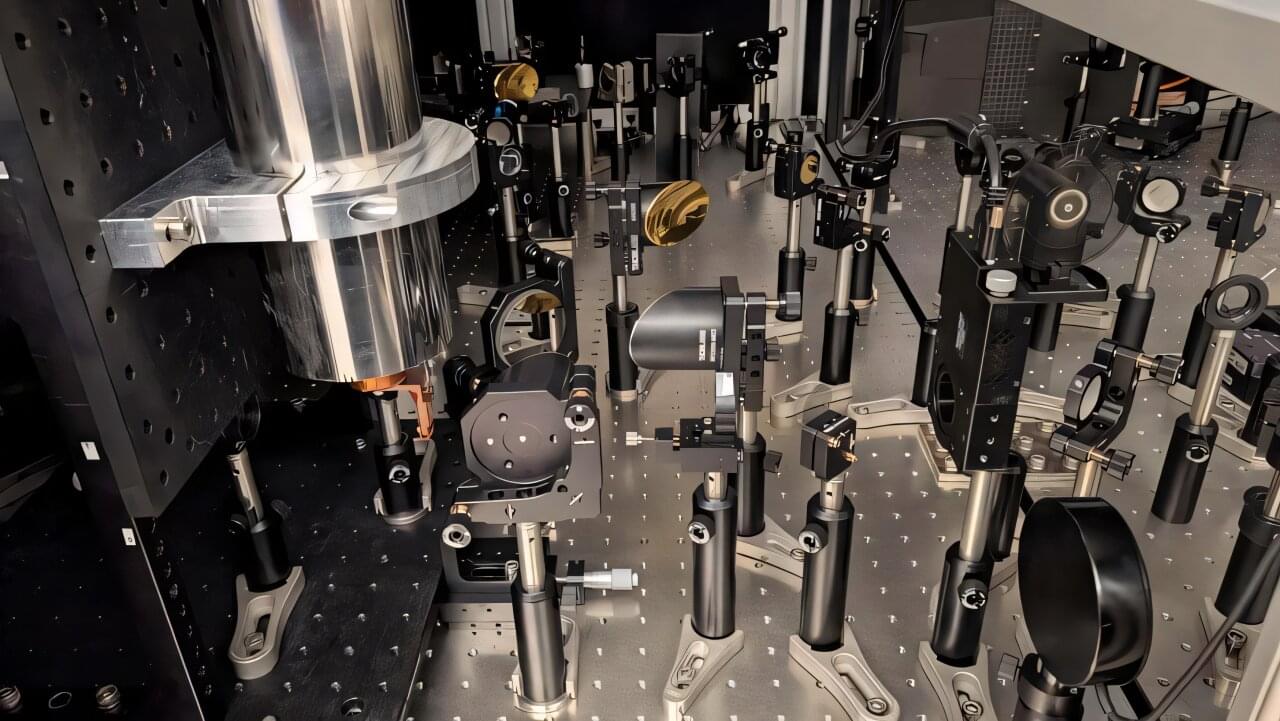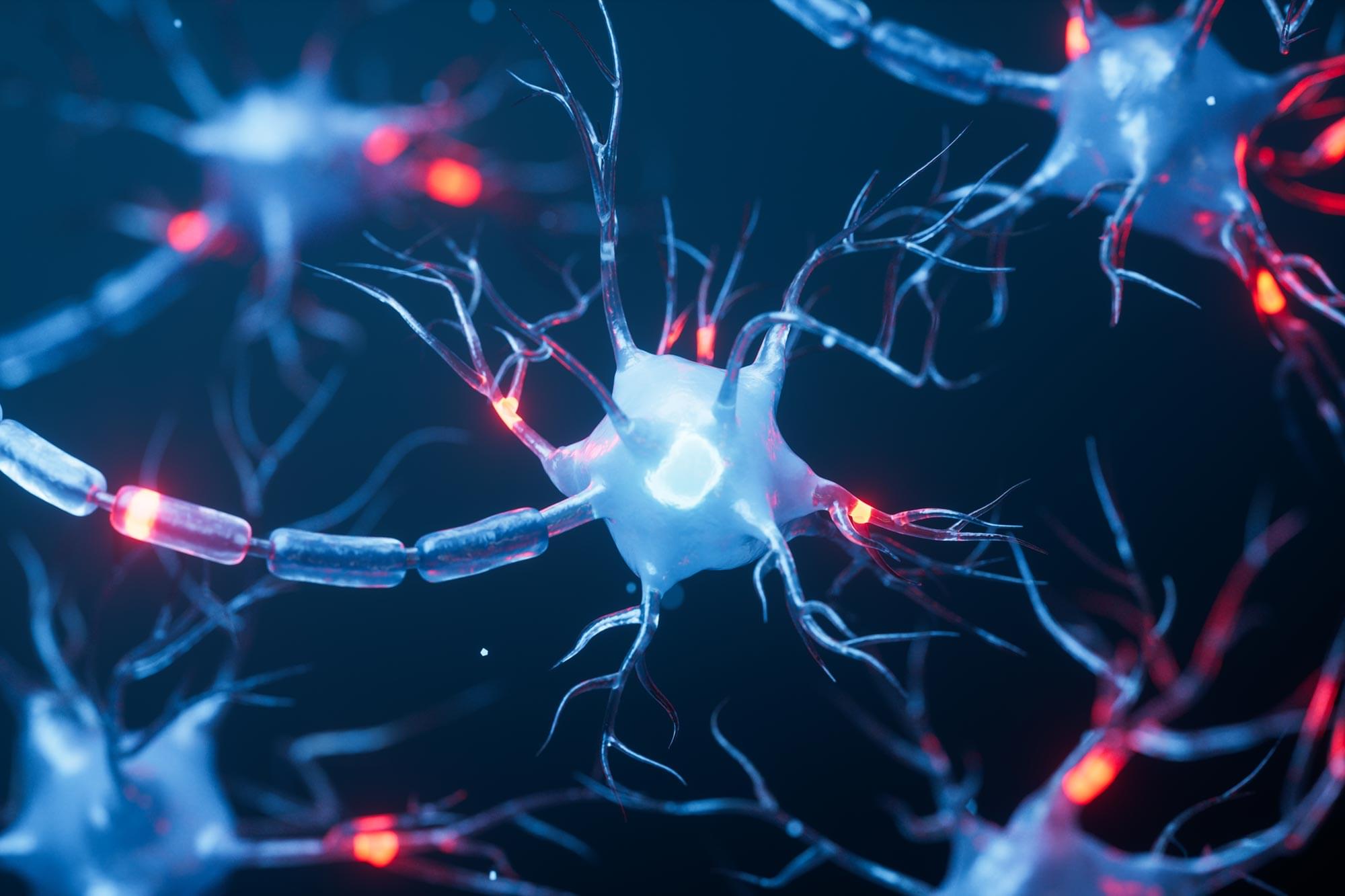A research team has demonstrated that thin films of ruthenium dioxide (RuO₂) exhibit altermagnetism—the defining property of what is now recognized as the third fundamental class of magnetic materials.



The ultimate goal of materials scientists is to design and create materials with precise structures and tailored properties. Predictive technologies have advanced significantly with the rise of AI, yet the delicate nature of chemistry, where even the smallest change can alter a material’s behavior, remains a challenge for building truly chemically intuitive frameworks.
In a recent study, a team of researchers from the US presented a homologous series of barium-based crystals, where the family of materials was built from the same molecular building blocks and capable of forming an infinite range of structures. The only differences among the versions are the size and the arrangement of the blocks, brought about by slight changes in the ratio of the two elements with different electron affinities.
What makes this set of materials unique is that knowing one member of a sequence allows you to predict the next. The researchers believe that understanding the relationship between small changes and a material’s overall chemistry can help improve AI frameworks for predicting and synthesizing new materials.

An international team of researchers led by Lancaster University has discovered a highly efficient mechanism for shaking magnets using very short light pulses, shorter than a trillionth of a second. Their research is published in Physical Review Letters.
The discovery of new fundamental properties and phenomena in magnetic materials is essential for the development of faster and energy-efficient devices.
Using a very short electromagnetic pulse to shake the magnetization, researchers investigated its effect on the magnetization steering angle in two similar magnetic materials with different electronic orbitals. After shaking the magnet and subsequently analyzing its magnetic state, they found that interaction between orbital motion and spinning enables a 10-fold larger spin deflection by the light pulse than the one without such interactions.

Financial markets are often seen as chaotic and unpredictable. Every day, traders around the world buy shares and sell assets in a whirlwind of activity. It looks like a system of total randomness—but is it really?
Scientists have long suspected that there is a hidden order under this noise, but it has been difficult to prove. Now, Yuki Sato and Kiyoshi Kanazawa of Kyoto University have provided some of the strongest evidence yet. By studying eight years of data from the Tokyo Stock Exchange (TSE), they have confirmed a long-standing hypothesis known as the square-root law (SRL) of price impact.
Brain imaging of 30,000 people revealed that ultra-processed foods are associated with structural differences in the brain that could fuel overeating.
The study suggests that additives like emulsifiers may influence these effects. While some processed foods are beneficial, ultra-processed products pose a clear risk.
Brain imaging study reveals concerning links to ultra-processed foods.

Data collected using multiple NSF NOIRLab facilities reveal a gamma-ray burst that lasted more than seven hours and originated in a massive, extremely dust-rich galaxy. Gamma-ray bursts (GRBs) rank among the most extreme explosions known in the Universe, surpassed only by the Big Bang itself. Mos



The first planet ever found orbiting another star was detected in 1995, and it belonged to a class now known as a “hot Jupiter.” These exoplanets are comparable in mass to Jupiter but circle their stars in just a few days. Scientists now believe that hot Jupiters originally formed far from their stars, similar to Jupiter in our Solar System, and later moved inward.
Two main processes have been proposed to explain this journey: high-eccentricity migration, where gravitational interactions with other objects distort a planet’s orbit before tidal forces near the star gradually make it circular; and disk migration, in which a planet slowly spirals inward while embedded in the protoplanetary disk of gas and dust.